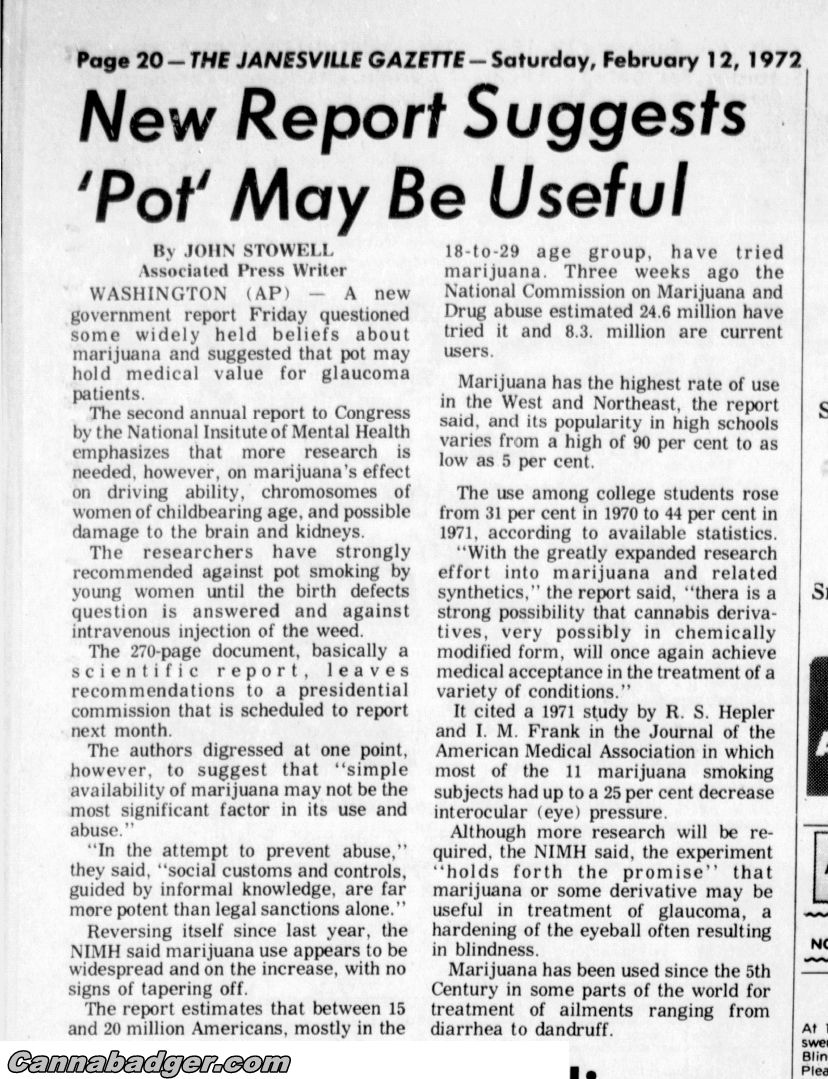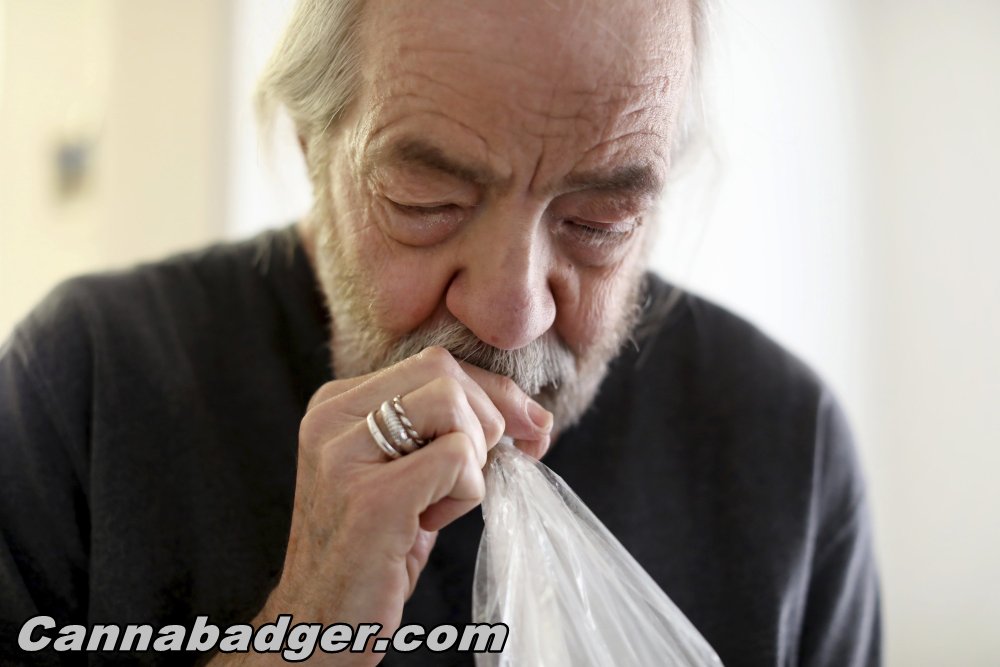October 3, 1972 was a pleasant early fall day. The weather history says the high for the day was 63 with southerly winds blowing at 12mph. The day was likely sunny with no precipitation was reported. I was a 17-year old high school senior attending a Catholic high school in Waukesha." data-share-imageurl="https://www.cannabadger.com/sites/default/files/field/image/p1090227-racine-insufficiency-cb-2-300x201_003.jpg">
Today, Wednesday, October 3, 2019 is a special date for me, marking the 47th "cannaversary" of the first time I smoked cannabis before visiting my ophthalmologist for a glaucoma checkup and discovering cannabis had the potential to save my sight from a lifetime of glaucoma.
October 3, 1972 was a pleasant early fall day. The weather history says the high for the day was 63 with southerly winds blowing at 12mph. The day was likely sunny with no precipitation was reported. I was a 17-year old high school senior attending a Catholic high school in Waukesha. I was born with glaucoma and the disease had been ravaging my sight since I was a small child. My eyes constantly hurt and the drops used to treat it stung and made my vision blurry. Then as now, I was very sensitive to bright light. Standard medications never fully controlled the elevated intraocular pressures, and surgery was too risky.
I was very near-sighted and a voracious reader. I had seen news articles about federal government research on marijuana and glaucoma in the local newspapers.
So, on Tuesday, October 3, 1972, I decided to begin my own research, my personal n=1 study. I got out of school early for the appointment. Before friends dropped me off at home where my mother would drive me the 20 plus miles into downtown Milwaukee where my eye doctor had his office, we smoked some very medicinal cannabis.
Getting to the office took nearly an hour and there was the usual wait before being ushered back to be examined, so it was at least an hour and a half before my ophthalmologist checked my pressures at 3:45pm.
My doctor, who had been treating me since I was very young, was thrilled to find my pressures, usually very elevated, were in normal range in both eyes. I did not volunteer why, it just did not seem like it would be a good idea at the time. But I knew I had a potent tool that could save my eyesight in cannabis. I'd been smoking pot a good year or so, but this was the first time it officially became medical.
Wisconsin passed the Therapeutic Cannabis Research Act in 1982 that included glaucoma, but without a means of supply. Today 33 states have some form of medical cannabis law with glaucoma included as a qualifying condition in most. For me, glaucoma is just one of a number of conditions that cannabis currently helps me treat, including chronic pain, severe arthritis, PTSD, anxiety and prostate cancer. My doctors concur it is beneficial.
But for Wisconsin patients in need like myself, the wait continues. I could have never anticipated that now at age 64 1/2, my medicine would still not be legal in my native state. Why Isn't My Medicine/Our Medicine Legal YET?
Thankfully we do have the first bipartisan medical cannabis bill since 2005, authored by Sen. Jon Erpenbach (D-Middleton), Rep. Chris Taylor (D-Madison), and Sen. Patrick Testin (R-Stevens Point). The bill, currently titled LRB 1055/1, had a Sept. 30 cosponsorship deadline, and will next receive senate and assembly bill numbers and be referred to respective committees in each house. Although Senate Majority Leader Scott Fitzgerald has restated his opposition and said the GOP senate caucus does not support medical cannabis, and Assembly Speaker Robin Vos claims to support only a very restrictive program, Wisconsinites want a robust program that helps the most patients.
Earlier this year, the Marquette Law School Poll found 83% support for medical cannabis. In 2002, Chamberlain Research found 80.3% support in a poll commissioned by IMMLY.
I have to admit that when Oct. 3, 2020 rolls around, it's unlikely Wisconsin will be among states with legal cannabis given the current political situation. But one day we will.



